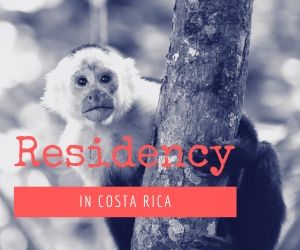And is it not true that the exchange rate is based on the stability of the gov't too? Usually, if the gov't becomes threatened or instable for whatever reason, the demand for the currency drops so the currency gets cheaper, however if as ID pointed out the CR gov't uses the stash of dollars that we all bring to CR to buy their own money "off the currency market" it would counter the decline in demand so the value stays near the same.
There is a point where if the gov't becomes too instable, the central bank can't afford to buy (prop up) the currency so without the central banks involvement, the currency takes a huge hit. The job of the central bank is to weather the storms so to speak - sometimes the storms are too big to weather.
Considering CR has no military and no rare natural resources (fruit isn't rare) that another country would want - there is no reason for the gov't to fail due to attack by another country so this gives CR stability. They can create their own instability - corrupt Presidents and gov't within does have a bearing on stability.
After one considers stability with respect to currency, then one can take into account the interest rates the central bank charges, imports and exports, tariffs, money supply (how many colonies are outstanding) and a lot more to decide how much the colony is worth.
Bilko wrote:
I am definitely not an economics major, but the US dollar has been on a slide for a quite a while. I think perhaps when CR undid the automatic adjustments there was probably some slack to take up, which is what I think is happening now. Eventually I expect the Colon will start to lose ground again, but perhaps with the US budget and trade deficits, US inflation will match Costa Rica's.
Just as the value of the dollar is based on what our gov't/economy/interest rates are, the value of the colony has more to do with what is happening within Costa Rica not what our policies are. In other words, if the colony raises in value, it is because CR is doing the right stuff, it isn't that the USA isn't doing the right stuff.
Consider Brazil - five years ago it was 4 real (spelling) to 1 dollar and now it is 2 real for $1.90. The reason the real gained in value (200%) is about what Brazil has done to make their currency worth more (stable gov't/imports/export/interest rates/etc.).
Money supply is a huge factor - if a gov't prints too much money, the supply out paces demand so the value on the currency markets will decline.










